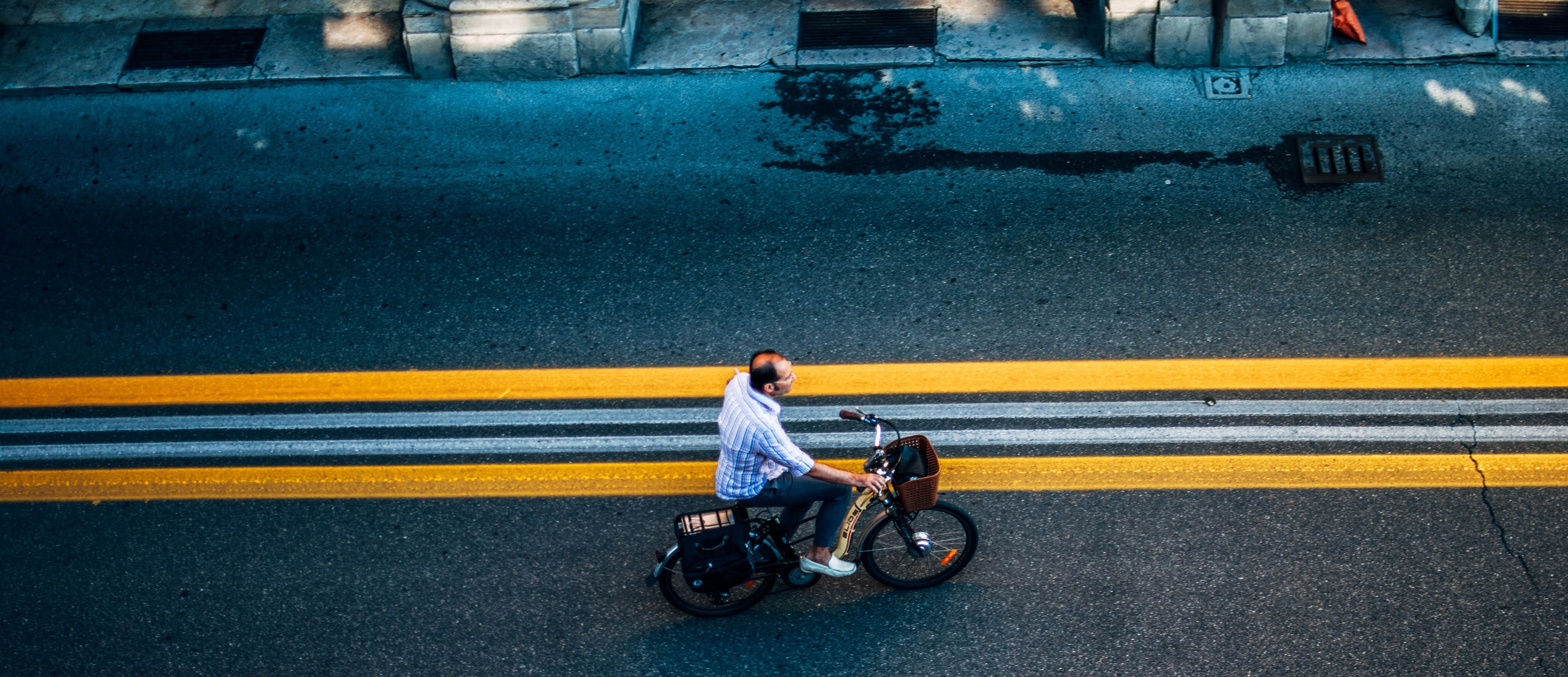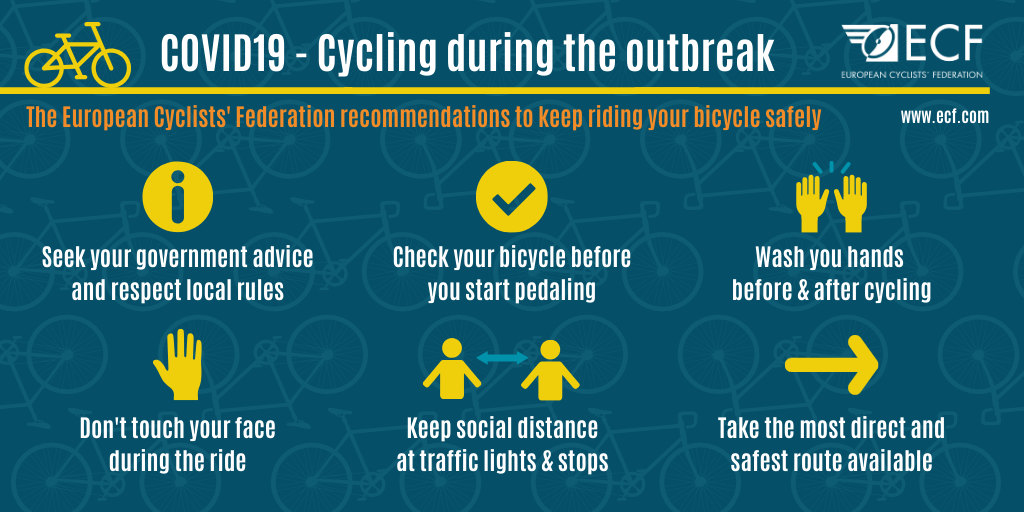
Keep Cycling during the Coronavirus Outbreak
Urban cycling is healthy, safe and could help lay the foundations of a more resilient economy for the post-COVID-19 Europe. Millions of Europeans still have to move for work or for other needs. We urge all EU authorities to allow cycling and to ensure it remains a safe option.
Social distancing is the new norm regulating all public spaces. But we register reports of Ministers and Mayors from all continents recommending their citizens to cycle to work or to shops in order to avoid crowded public transport and still be physically active.
“Cycling is the perfect activity to do these days. It has an excellent track record of preventing physical and mental illness. It is one of the safest means of transport, once motorised vehicles are taken out of the equation – as they are now. And it automatically keeps you at the distance recommended by virologists” commented Jill Warren, co-CEO of ECF.
In these times of quarantine, authorities from all over the world are asking their citizens to take up cycling to commute or to keep doing some physical activity safely. New York Mayor Bill de Blasio urged citizens to “Bike or walk to work if you can”. A group of 50 British academics and experts on public health wrote an open letter to the UK government asking Ministers not to discourage cycling and walking. In Germany, Health Minister Jens Spahn, Labour Minister Hubertus Heil and the bicycle advocates from ADFC recommended cycling as the healthiest option for necessary trips. Bogotá Mayor Claudia López is taking the opportunity and building dozens of kilometres of temporary bike lanes as a way to cope with the outbreak: “The bicycle, being an individual means of transport, represents one of the most hygienic alternatives for the prevention of the virus, especially in this first preventive stage in which it is recommended to avoid close contact and crowds.”
We are very well aware of the benefits of cycling, in a number of fields: health, environment, climate change, economy, social inclusion. Therefore, we call on all authorities to support cycling even more in these difficult times and to take the necessary measures to make it even safer.
We also understand that the current situation requires special attention. So here are the 5 things everyone riding a bicycle should do to limit all potential risks to an acceptable minimum.
ECF recommendations to cycle safely during the COVID-19 crisis
1. Seek government advice
First and foremost, we recommend you keep up to date with what your own (local) authorities are prescribing at the moment. The situation right now is changing very quickly, so do check regularly what is allowed and what is not in your city or country.
2. Check your bicycle before leaving
Even more than in our everyday life, it is very important that all potential malfunctions are avoided. Before starting to ride, go through a quick check-up of your bicycle and make sure everything works properly: tyres, brakes, lights, chain, seat post, handlebars.
3. Wash your hands, don’t touch your face, sanitise what you can
Tests have revealed that the Coronavirus can survive around 12 hours on most surfaces. So do wash your hands before and after riding your bicycle. Don’t touch your face while you are riding, whether you are wearing gloves or not. And remember to bring hand sanitiser with you. This applies in particular – but not only – to shared bicycles.
4. Maintain the safety distance
Social distancing is naturally inherent in cycling, but pay extra attention and keep some space between you and other road users. When stopping at traffic lights or at an intersection, avoid creating groups of cyclists too close to each other.
5. Keep it as short and direct as possible
Even though cycling is and remains safe and healthy, all activities should be limited to the absolute necessities. So do check your itinerary beforehand and take the most direct route to get to your destination.

Regions:
Contact the author
Recent news!
Upcoming events
Contact Us
Avenue des Arts, 7-8
Postal address: Rue de la Charité, 22
1210 Brussels, Belgium









